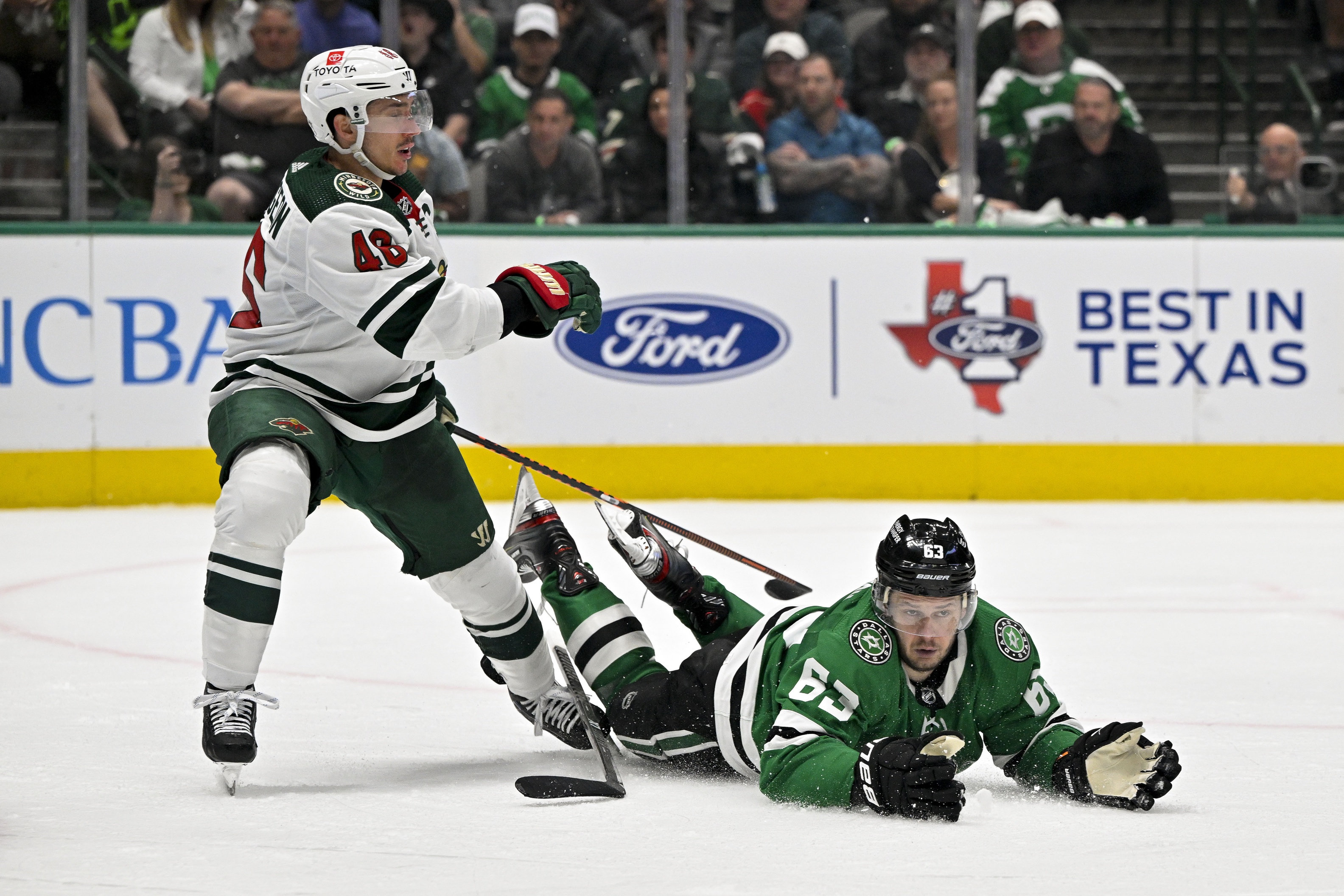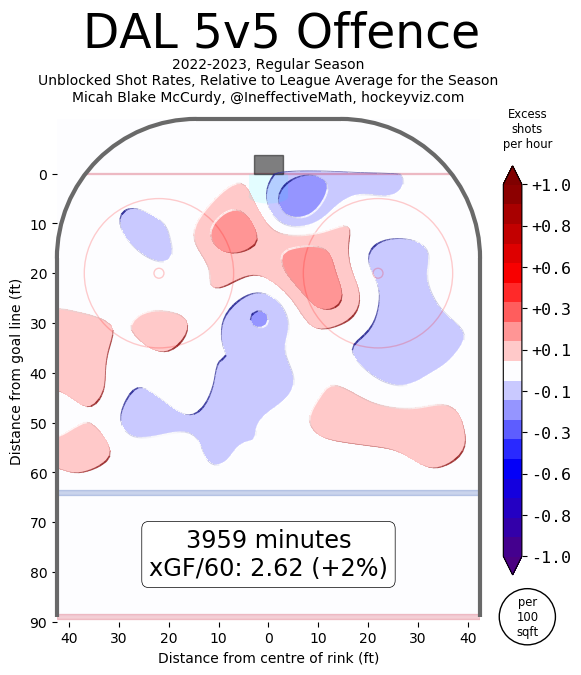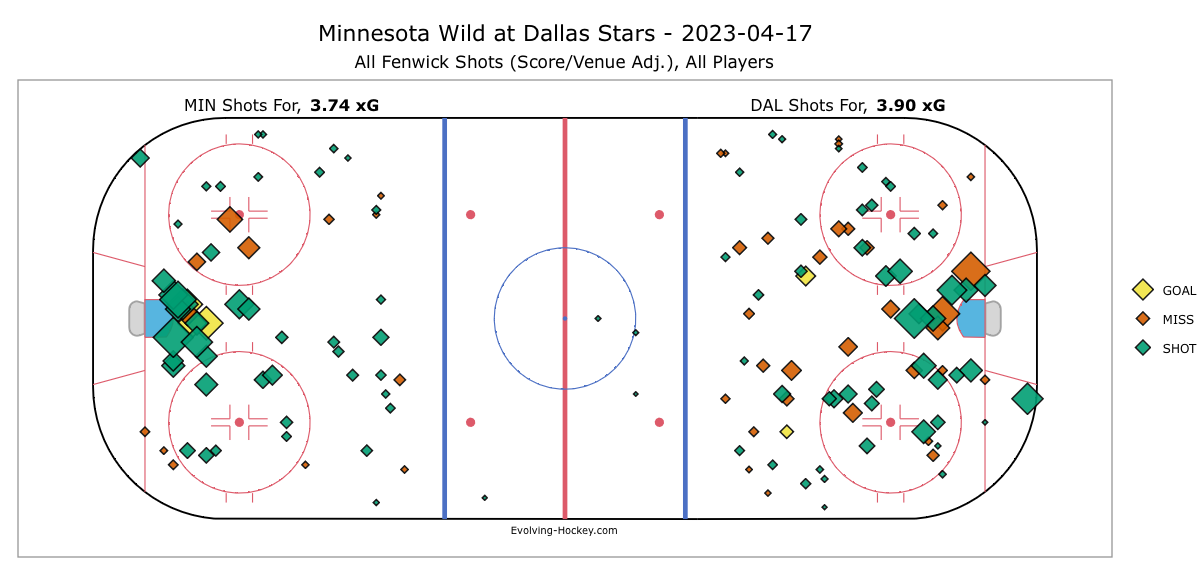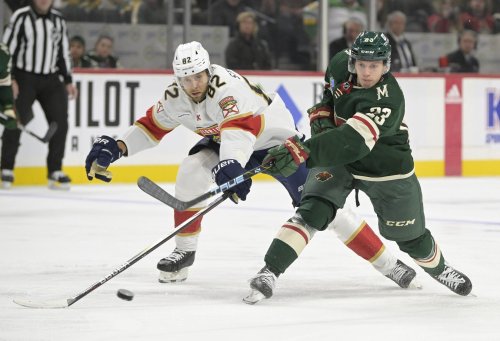
Defense wins championships. At least that’s what the saying goes. If that’s the truth and not just a mantra, the Minnesota Wild are setting themselves up for success. It's paid dividends in Game 1 against the Dallas Stars and — we hope — will continue to do so for the rest of the first round and beyond.
The Wild's franchise identity is built around staunch defense and surprising goaltending. A big reason for that is they often have underrated, but elite defensemen. There are few in the league that rival the calm, calculated yeoman-like work that comes from Jonas Brodin and Jared Spurgeon. They limit scoring chances, knock loose pucks away, and make life easier for their teammates.
Especially the one in the crease. Their play led the Wild to have the second-lowest goals against total at even-strength this year, surrendering only 139. That figure is tied with the Carolina Hurricanes and only lagged behind the Boston Bruins, a team that won a record 65 games.
The recipe for success? Staunch defensive play in the highest value part of the ice, right in front of the net.
Even the most loyal believers in this club would look at its blueline of puck movers and smooth skaters and be concerned about their ability to defend in front of the netminder. John Klingberg, who missed the first game of the series, is a lanky 6-foot-3 and 190 pounds. Flashy newcomer Brock Faber has shown his mettle early on in his NHL career, but he's a scant 6-foot-1, 200 pounds.
Heck, even Matt Dumba — Public Enemy No. 1 in the eyes of Stars fans — is listed at six feet, 181 pounds. It's not the size of the Wild defensive group that has made them one of the best at defending in front of the net; it’s their commitment and discipline that ensured success for the club. Dallas came face-to-face with that stout defense and came away with a home loss in Game 1.
That the Stars' offense would struggle against the Wild should come as no surprise. Minnesota is one of the best teams in the league at shutting down net-front offense. According to Natural Stat Trick, they were second in the league in high-danger scoring chances, allowing 10.58 chances per sixty minutes at even strength. To put that into perspective, that's more than five fewer chances per hour than the Anaheim Ducks, the league's worst team at 16.04.
As illustrated here in the Hockey Viz shot heat maps, Dallas' offense comes almost exclusively from in front of the net, with deflections and rebounds providing the bulk of the opportunities.

The brick wall of defense from the Wild is proving the perfect foil for Dallas' offensive weapons. As a group, Dallas averaged 12.51 high-danger chances per hour, and newly-anointed superstar Jason Robertson plays a big part in that. Despite scoring 109 points in the regular season, Minnesota held Robertson and the Stars off the score sheet at even strength. While they managed to stay in the game with two power play goals, this should be a feather in Minnesota's cap.
Just have a look at how few shots came from around the net in Game 1.

Shot blocking seems to stir up arguments over its value as a strategy in hockey circles. But for the Wild, it’s a helpful tool to limit dangerous shots and allow their world-class goalie to get set and handle whatever is coming his way. In Game 1, Brodin and Jake Middleton led the Wild with five blocks apiece. In total, the Wild blocked 30 shots, which comes as a surprise when Spurgeon — who blocked the sixth-most in the league this season with 179 — only contributed three to the total.
I'm not trying to diminish the effort put forward by Filip Gustavsson, but the Wild defense rose to the challenge put ahead of them and made his job easy. Or at least, as easy as it could be in a 51-save performance in a double overtime game.
The end of this series is a ways away, and the sheer firepower of the Stars offense still creates a daunting task for the Wild. Minnesota's blueline seemingly lacks the size to slow down a deluge of Dallas' deflections and big bodies. But their willingness to put their bodies on the line and their inability to give up on the play around the net means they are more than capable of causing big headaches for the Stars’ forwards. If they can continue to clear away the trash around the net, they can put their division rivals to bed.
Think you could write a story like this? Hockey Wilderness wants you to develop your voice, find an audience, and we'll pay you to do it. Just fill out this form.
-
 1
1








Recommended Comments
Join the conversation
You can post now and register later. If you have an account, sign in now to post with your account.
Note: Your post will require moderator approval before it will be visible.